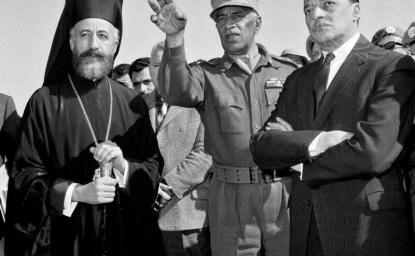CWIHP is pleased to announce the publication of CWIHP Working Paper #52, "'We Need Help from Outside': The North Korean Opposition Movement of 1956" by James F. Person.
New findings from the Russian archives that provide important insights into the roots of North Korea's most troublesome characteristics—its extreme despotism and its pronounced mistrust of outside powers. James F. Person's "'We Need Help from Outside': The North Korean Opposition Movement of 1956," CWIHP Working Paper #52, examines the development of an anti-Kim Il Sung opposition movement inside North Korea throughout the spring and summer of 1956, sparked by the anti-Stalin reforms launched that year by Soviet leader Nikita Khrushchev.
As Person reveals, the opposition group openly criticized the personality cult of North Korean leader Kim Il Sung, his economic policies, and his violations of democratic norms. Some semblance of political life thus existed in North Korea prior to the fall of 1956. Kim Il Sung outmaneuvered his opponents at the Party Plenum in August 1956, but his two patrons, the Soviet Union and China, immediately intervened to force the North Korean leader to make a humiliating self-criticism and reversal of policy. It was only the Hungarian uprising of October 1956 that saved Kim Il Sung. With the Soviets and Chinese distracted by the crisis in Hungary, Kim Il Sung was able to reassert his power, expel his chief opponents, and solidify his absolute dictatorship. Person concludes that this serious threat to Kim Il Sung's rule from China and the Soviet Union forever altered Kim's approach to his patrons, creating a profound mistrust of outside powers that continues to shape the decisions of his heir, Kim Jong-Il.
The working paper can be found on the CWIHP website

Cold War International History Project
The Cold War International History Project supports the full and prompt release of historical materials by governments on all sides of the Cold War. Read more




